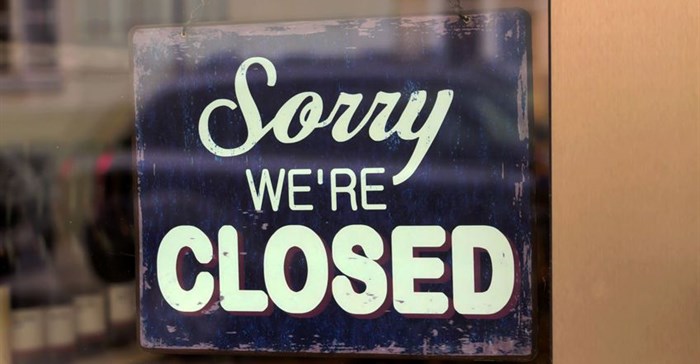
Top stories






More news














“This crisis has fast-tracked digital disruption and out-the-box thinking. Covid19 has forced digital transformation to the top of the agenda, with companies pivoting their business model to provide service offerings that are compatible to Covid-19 lifestyle changes.”
Cikes shares some key examples of how local businesses have adapted in response to the nationwide lockdown.
Bella Bathrooms and Tiles, a retailer that sells bathroom and kitchen products, is offering a décor service allowing homeowners to download the Bella Bathrooms app which accesses the person’s cellphone camera (with the relevant permissions). In this way, homeowners can enjoy a virtual consultation from the safety of their own homes with their bathroom designer.
“If you believe your sales and consultations can only be done face-to-face, it might be time to re-evaluate your entire sales process and transform it,” says Cikes.
Our ‘new normal’ demands that businesses find ways to digitally engage with potential clients and to figure out how existing services can be offered in new ways. “By using technology to create alternative avenues of communication and engagement, businesses can enhance their service offering while accommodating lockdown regulations to support customers’ goals of staying safely at home," says Cikes.
While alcohol sales have been prohibited, boutique liquor company Dry Dock has been offering virtual wine tasting events through webinars. Participants who have a wine collection at home can open the same bottle of wine used in the webinar, or if they have the same type of wine, such as a sauvignon blanc, from a different brand, then the sommelier will discuss the differences between their wine and the other brand.
“Here’s a perfect example of how a company digitally updated an age-old way of doing something in order to accommodate the current restricted parameters. They’re staying relevant even at a time when many businesses in their industry have ground to a halt,” says Cikes.
"Businesses can transform tangible, interactive experiences into online alternatives. This allows for a personalised environment where participants can enjoy a one-on-one engagement with the host. Using a digital platform also extends audience reach to include a potential global audience that could experience your expertise at the click of a button."
Epione, a healthcare technology platform, has added a Covid-19 pre-screening symptom checker onto its platform which provides access to health professionals. This new feature enables patients to monitor and evaluate the progression of their symptoms remotely.
“An important lesson from this crisis is creating flexible solutions to meet people’s needs within the current environment,” says Cikes. “By using expertise in their particular domain, businesses can focus on a key feature that addresses consumer demand and pain points at a given time.”
Pivoting doesn’t always mean reorganising your business for gain or profit, says Cikes. Some organisations have adapted to bring their solutions to the frontlines to pull South Africa through the pandemic.
One example is Kim Whitaker, a hospitality broker who decided to lend a hand while her own business had come to a halt by founding Ubuntu Beds - an initiative that aims to unite hospitality businesses that now stand empty, with healthcare workers who are fighting the virus on the frontlines.
Another example is the Sasol Foundation sponsorship of The Lockdown Digital Classroom, a voluntary virtual classroom created to support student learning during lockdown.
Cikes adds that Payflex, which is a buy-now-pay-later fintech provider, has also used its digital platform for good, providing a payment infrastructure for the Solidarity Fund that allows donations to be paid over four instalments. “By giving South Africans the opportunity to donate in instalments, we are providing a more flexible option to those wanting to make a difference, accommodating different budgets in the process,” he explains.
“Pivoting to address specific needs of groups, such as the educational community, allows a brand to demonstrate empathy and understanding. This communicates a message of solidarity with a focus that goes beyond profit. By striving to make a meaningful difference to those around you, brands can foster brand loyalty and alignment both during and long after the crisis has dissipated, while making a positive impact on people’s lives,” he says.
Website development company Redshift has invited local supermarkets and suppliers onto their platform, allowing shop owners to accept orders from customers during lockdown. The pivot has enabled Redshift to expand its business offering and help to support retailers providing essential services.
“This is an example of using current digital infrastructure to expand offerings to remain operational and viable in a challenging economic time,” says Cikes. “Think about your core infrastructure and how this can be leveraged to create a new revenue stream.”
Facilitating the signing of legal documents has enabled innovative digital disruption in the legal arena. Registered Communication is an electronic communications provider that has transformed the traditional paper-based notification and hard-copy delivery of contractual documents into a legally compliant digital alternative.
"Think of the problems companies or people are facing as opportunities to find the relevant solutions. Leveraging technology can help restructure your service offerings to meet new demand and generate welcome revenue," says Cikes.
Pivoting has always been an integral part of innovation, even in everyday business management. However, the Covid-19 disruption is accelerating the need for radical business transformation to ensure business survival and long-term success.
“Businesses are re-imagining themselves. Although pivoting comes with risk, inaction can pose a far greater threat to survival in times of disruptive economic change,” concludes Cikes.